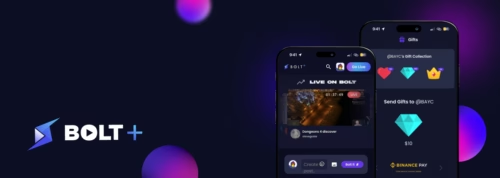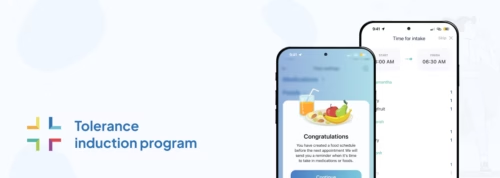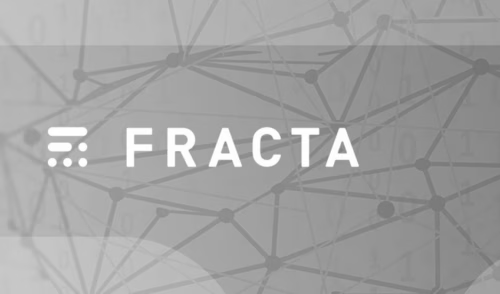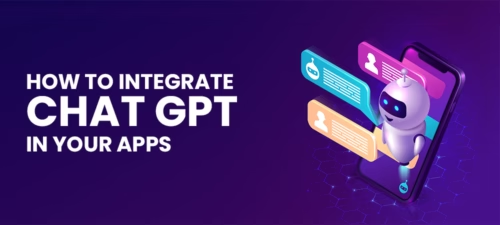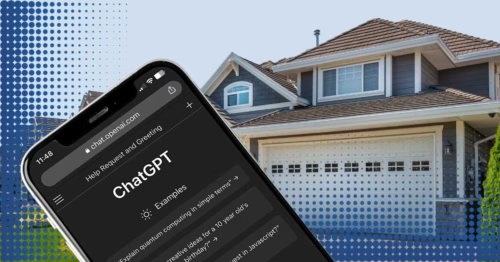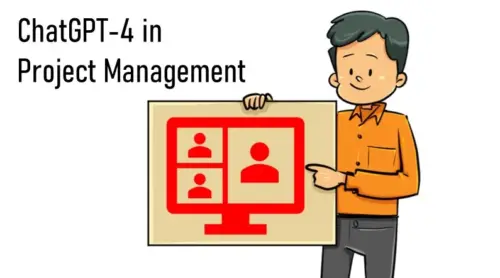Do you need to hire OpenAI developers so that you can boost your application with artificial intelligence technology?
This is a great idea as many other companies are rushing to cash in on the AI bonanza that is currently underway.
Businesses are already using OpenAI technologies such as ChatGPT - the fastest growing app in history to boost their customer engagement via chatbots, etc., automate repetitive business processes, and help their in-house teams and clients to get information quickly, etc.
Naturally, this has caused a huge spike in demand for OpenAI-related products. A recent survey on global chatbot growth stated that the global market for chatbots will grow by an impressive 23.3% CAGR between 2023 and 2030.
This soaring demand for OpenAI applications has created a spike in demand for OpenAI developers. OpenAI development involves advanced technologies like artificial intelligence (AI), machine learning (ML), and natural language processing (NLP), all of which are considered relatively niche software development skills. This means that OpenAI developers are in high demand.
Companies often consider hiring freelancers to try to cut down costs. However, this is incredibly risky. AI development requires highly skilled developers. Therefore, the smart move is to hire dedicated OpenAI developers from a leading OpenAI development company like DevTeam.Space. More on this later.
You will need to understand your specific OpenAI development skill requirements before you can even place an ad to hire developers. In order to help you, here is a general list of the skills you likely need from your OpenAI developer.
Good OpenAI developers must have the following skills:
Primary skills for OpenAI development
You want OpenAI developers with the following primary technical skills:
- Familiarity with deep learning principles, neural network architectures, and their applications in NLP.
- Knowledge of how to train and fine-tune language models, especially those provided by OpenAI, using large datasets.
- Understanding of NLP concepts and techniques, including tokenization, word embeddings, part-of-speech tagging, named entity recognition, sentiment analysis, and more.
- Proficiency in working with NLP libraries and frameworks such as NLTK, spaCy, Transformers (Hugging Face), and OpenAI's own libraries if available.
- Strong programming skills in Python, as most NLP and machine learning libraries are Python-based.
- Knowledge of Python libraries like NumPy, Pandas, and Matplotlib for data manipulation and visualization.
- Ability to work with APIs and integrate OpenAI's APIs into applications.
- Understanding of RESTful API principles and authentication methods.
- Knowledge of data pipelines and data transformation techniques.
- Experience with deploying machine learning models to production environments, including containerization (e.g., Docker) and orchestration (e.g., Kubernetes).
- Scalability considerations for handling high volumes of requests.
- Awareness of ethical considerations in AI, including bias mitigation, fairness, transparency, and privacy.
- Understanding of OpenAI's usage policies and guidelines.
- Proficiency in version control systems like Git for code management and collaboration.
- Experience working on collaborative projects in teams.
- The ability to formulate creative solutions to complex language understanding and generation problems.
- A knack for thinking outside the box to design innovative applications.
- An eagerness to stay updated with the latest advancements in NLP and AI, including OpenAI's research and new model releases.
- Willingness to adapt to changes and improvements in OpenAI's offerings.
- The ability to document code, models, and processes for knowledge sharing and future reference.
Developers must have a good level of experience in developing OpenAI-related applications from scratch. They should also be well-versed in testing these OpenAI-based applications. When it comes to testing, they need to be knowledgeable in data preparation and AI bot training, which involves the following:
- Collecting pools of large data sets;
- Organizing both the structured and unstructured data sets;
- Identifying and removing duplicate data;
- Data set error correction;
- Cleansing sensitive personal information;
- Deleting non-required data;
- Identifying biases in data sets and correcting them;
- Reviewing data sets.
Other skills relevant to providing OpenAI development services
Developers need several additional skills to be successful at building OpenAI applications:
- Application security
OpenAI developers are required to work with vast data sets when testing and training OpenAI chatbots. As such, they must ensure that third parties are not able to tamper with data sets, i,e. that constitutes a privacy breach.

Get a complimentary discovery call and a free ballpark estimate for your project
Trusted by 100x of startups and companies like
Developers must know how to use the latest application security tools and technologies, e.g.:
- Multi-factor authentication (MFA);
- Secure authentication tokens;
- Authorization and access control technologies.
They must also know and enact preventive approaches to application vulnerabilities like SQL injection and cross-site scripting (XSS).
1. Software development processes
OpenAI developers must be experienced in the following:
- Testing and DevOps processes;
- Code review;
- Coding guidelines and best practices;
- Software development methodologies like agile;
- Software architecture;
- User interface design considerations.
2. The ability to work in a team environment
In order to succeed in software development, developers will also need to be skilled at:
- Teamwork;
- Empathy;
- Collaboration skills;
- Problem-solving skills;
- A passion for excellence;
- Commitment to the common objective of the team.
- Strong communication skills to explain model choices, results, and technical concepts to non-technical stakeholders;
- Depending on the application, domain-specific knowledge may be required. For instance, if you're building an AI for healthcare, an understanding of medical terminology and practices can be crucial.
How to find the best OpenAI developer?
Now that you have taken a list at our generalized list of OpenAI development skills that you will need from your AI engineer, you should nail your specific ones based on your project requirements. After you have these, you can start the hiring process. Follow these steps:
1. Choose a platform to hire OpenAI developers
Companies look into ways to find the best personnel at the best rates. Like many others, you might think that the best idea is to hire freelancers as you can get them at a lower hourly rate. This is a mistake. Instead of trying to save pennies on developer salaries, we strongly encourage you to focus on doing the best for your business.
Hiring freelancers comes with various risks, e.g.:
- Quality and Reliability;
- Communication Challenges;
- Lack of Accountability;
- Data Security Concerns;
- You get no project management support from freelance platforms.
You can overcome all these risks by hiring OpenAI developers from a reliable software development company like DevTeam.Space.
Here are some of the main advantages dedicated software development companies such as DevTeam.Space offer:
- Dedicated developers with the specific skills that you need;
- Field expert developers who have extensive experience in your specific industry;
- A world-class development process;
- Comprehensive vetting process so you don’t need to;
- Considerable experience in developing complex business solutions;
- Project management support via a dedicated account manager;
- A proven communication process;
- Flexible hiring models.
Note: If you don’t wish to undertake the software development process yourself, don’t worry. DevTeam.Space can undertake the full software development lifecycle for you from beginning to end. Engaging us to build and maintain your project will leave you free to concentrate on other vital areas such as marketing, staff training, etc.
2. Interview OpenAI developers
So you have now posted your job ad and received resumes. You must now interview the candidates.
Note: If you hire developers from dedicated software development companies like DevTeam.Space, you won't need to undertake in-depth interviews. We have already done this. All of our developers work with us on a full-time basis so we know which are the best candidates for any given project.
You will definitely need to undertake very detailed interviews if you hire freelancers. Our interview questions can help. The following will get you started:
Remember to cover all relevant technical areas during the interview. This will ensure you get the best understanding of your candidate as possible.
Good questions focus on how developers solved problems in their past projects. You can start by explaining your project requirements and ask how they would approach such projects. Give them a few what-if questions relating to specific issues that might affect your project and see what they come up with.
3. Get OpenAI developers started on your project
You will likely need your developers to get up to speed quickly. For this, you will need an effective onboarding process. Do the following:
- Explain your project requirements to your new developers.
- Share your project documents.
- Grant required access to them.
- Explain your project plan, schedule, work expectations, and work approval processes.
- Introduce the new developers to your existing team.
- Explain the roles and responsibilities.
- Set up coms.
Interview tips to hire OpenAI developers
The following interview tips are a good idea:
1. Ask questions relevant to your project
You will benefit the most if you ask questions that are focused on your project requirements. For example, if you are planning to use the Microsoft Bot development framework, you should question your candidates about this.
Alternatively, do you plan to launch voice-enabled OpenAIs? If so, then focus on this specific area.
2. Look for senior developers if you have a complex project
Are you considering the deployment of OpenAIs for specific business strategic goals? Perhaps you're interested in focusing on customer behavior analysis and leveraging the insights to enhance your business operations, etc. This is a departure from basic OpenAIs that primarily focus on automating routine tasks for efficiency gains. You will need great developers for this.
Achieving a significant boost in customer experience or operational streamlining requires the implementation of sophisticated OpenAIs equipped with robust self-learning capabilities. In such cases, it becomes crucial to engage senior developers who can collaborate closely with end-users to nail the project requirements. It's imperative to hire developers who have the talent, skills, and experience to make this happen.
3. Choose service providers that respond to your dynamic business requirements
Your business requirements may undergo frequent changes, so it's essential to enlist developers from a company capable of effectively adapting to these dynamic needs.
For instance, you may have initially intended to hire only a few OpenAI developers, but later realized that your current team is stretched thin. As a result, you will likely now require additional developers proficient in website, mobile app, and messaging app development as well. Your hiring platform should be equipped to swiftly provide web and mobile developers on short notice. This is another huge advantage of hiring from a reputable software development company like DevTeam.Space.
Examples of interview questions to ask when hiring OpenAI developers
Consider using the following interview questions:
1. Explain the concept of tokenization in natural language processing and how it relates to OpenAI's models.
Tokenization is the process of breaking down a piece of text into smaller units, known as tokens. Tokens are typically words or subwords, and they serve as the fundamental units of text that models like GPT-3.5 use for processing.
Hire expert developers for your next project
1,200 top developers
us since 2016
In OpenAI's models, tokenization is crucial because these models have a maximum token limit. For instance, GPT-3.5 might have a maximum limit of 4096 tokens for a single input. If your text exceeds this limit, it needs to be split into smaller segments, and you must ensure that each segment fits within the token limit. The model processes these tokens sequentially, so the context of earlier tokens can affect the interpretation of later tokens.
Here's a Python code snippet demonstrating tokenization using OpenAI's GPT-3 API:
python
Copy code
import openai
text_to_tokenize = "Tokenization is an important concept in NLP."
tokens = openai.Completion.create(
engine="text-davinci-002",
prompt=text_to_tokenize,
max_tokens=10 # You can set the max tokens as per the model's limit.
)
print(tokens.choices[0].text)
2. How would you fine-tune a pre-trained language model like GPT-3.5 for a specific NLP task, and what are the key considerations?
Fine-tuning a pre-trained language model like GPT-3.5 involves training the model on a specific task or dataset to make it more proficient in that domain. Here are the key considerations and steps:
Data Preparation: Collect and preprocess a dataset relevant to the task, ensuring it's well-structured and labeled.
Model Selection: Choose the base pre-trained model (e.g., GPT-3.5) that suits your task and requirements.
Architecture Modification: Fine-tuning usually involves adding task-specific layers to the model's architecture. You may also adjust hyperparameters.
Training: Train the modified model on the task-specific dataset, using a suitable loss function and optimization techniques.
Evaluation: Continuously evaluate the model's performance on validation data to monitor progress.
Hyperparameter Tuning: Adjust hyperparameters like learning rates, batch sizes, and dropout rates for optimal performance.
Regularization: Apply regularization techniques to prevent overfitting.
Deployment: Once the model meets performance criteria, deploy it in your application.
Here's a simplified code snippet for fine-tuning GPT-3.5 using the Hugging Face Transformers library:
python
Copy code
from transformers import GPT2ForSequenceClassification, GPT2Tokenizer, TrainingArguments, Trainer
# Load pre-trained model and tokenizer
model_name = "gpt2"
model = GPT2ForSequenceClassification.from_pretrained(model_name)
tokenizer = GPT2Tokenizer.from_pretrained(model_name)
# Prepare your dataset and create a DataLoader
# Define training arguments
training_args = TrainingArguments(
output_dir="./fine-tuned-model",
num_train_epochs=3,
per_device_train_batch_size=8,
Hire expert developers for your next project
save_steps=1000,
)
# Create a Trainer and start fine-tuning
trainer = Trainer(
model=model,
args=training_args,
data_collator=data_collator,
train_dataset=train_dataset,
)
trainer.train()
- Explain the concept of "few-shot learning" with respect to OpenAI's models, and provide an example use case.
Few-shot learning is a machine learning paradigm where a model is trained to perform a task with very limited examples or context. OpenAI's models like GPT-3.5 excel at few-shot learning, allowing them to generalize from a few examples and make predictions or generate text accordingly.
For example, you can prompt the model with a few examples of translation like this:
vbnet
Copy code
Translate the following English text to French:
- "Hello, how are you?"
- "What time is it?"
- "Goodbye, see you later."
The model can then generate translations for these sentences into French, even though it wasn't explicitly trained for this specific translation task. Few-shot learning leverages the model's pre-trained language understanding capabilities and its ability to extrapolate from the provided examples.
Here's a code snippet for using GPT-3.5 for few-shot translation:
python
Copy code
import openai
examples = [
"Translate the following English text to French:\n1. 'Hello, how are you?'",
"2. 'What time is it?'",
"3. 'Goodbye, see you later.'",
]
translation = openai.Completion.create(
engine="text-davinci-002",
prompt="\n".join(examples),
max_tokens=50, # Adjust max_tokens as needed
)
print(translation.choices[0].text)
This demonstrates how GPT-3.5 can perform few-shot translation without explicit training on a translation dataset.
Submit a Project With Zero Risk
Developing a custom OpenAI application can be a complex project. As we have shown, you need highly skilled developers. Why risk your project for anything less?
DevTeam.Space is a trusted community of field expert software developers with the experience and know-how to develop your custom OpenAI application. Our developers are fully vetted and trained in our unique agile software development process.
We match only the right developers or development team to your specific needs.
If you wish to learn more, you only need to fill out our DevTeam.Space product specification form and a dedicated account manager will contact you soon.
